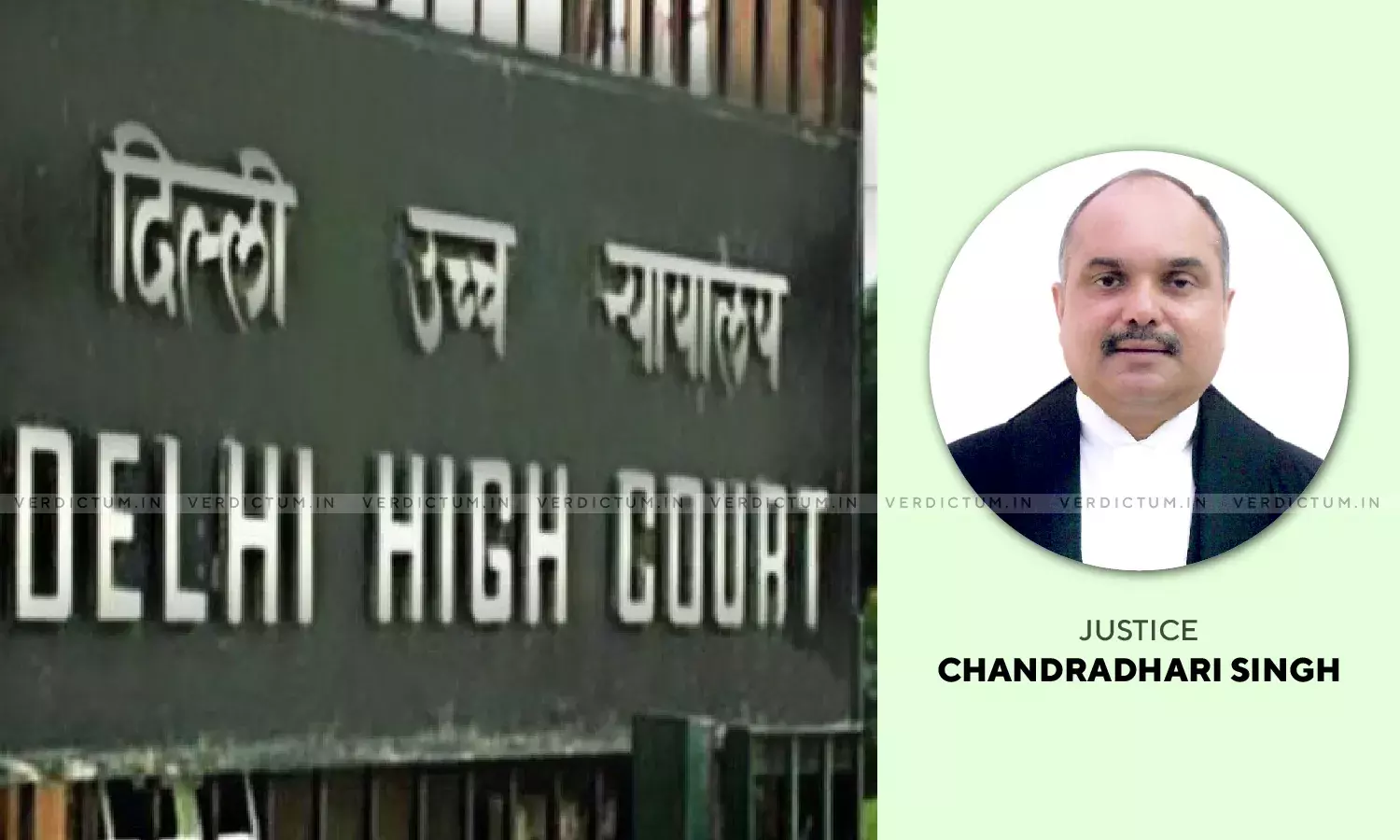Delhi Municipal Corporation's Policy Of Mandatory Attendance App For Paramedical Staff Neither Arbitrary Nor Unfair: Delhi HC

The Delhi High Court recently observed that the mandatory requirement for paramedical staff employed by the Municipal Corporation of Delhi to record their attendance through the 'MCD SMART Mobile Application' is deemed neither arbitrary nor unjust.
The Single Judge Bench of Justice Chandra Dhari Singh was dealing with a Writ Petition filed by the union representing the interests of 'para medical technical staff' challenging an order issued by the Municipal Corporation Department (MCD) whereby it directed that the salaries of all employees of the RBIPMT and MVID hospitals would be released only after they marked their daily attendance through the MCD SMART App via smartphones.
The Petitioner association before the High Court submitted that MCD issued the impugned order/policy without looking into its feasibility and conducting a trial run of the new app-based attendance mechanism. They submitted that to use the MCD SMART App, all employees are required to have a smartphone with the latest updates and access to a stable internet connection while most employees to whom the said policy is being implemented belong to Group C and D categories who do not have the financial stability to have smart phones or internet access.
Petitioners further submitted that the absence of stable Wi-Fi and network issues in hospitals prevents employees from using the MCD SMART App, leading to unintended absenteeism. Furthermore, it was also submitted the app's unavailability on official app stores raises concerns about data security and privacy infringement, potentially compromising employees' fundamental rights.
On the other hand, the MCD contended that the application has been introduced to inculcate a sense of discipline in employees, given that their work is in the healthcare sector and is patient-centric where the availability of staff is of prime concern. MCD further stated that there is no need for the employees to necessarily purchase smartphones as they can mark their attendance through their supervisor's phone or another employee as a 'parent employee' can also mark the attendance of employees mapped with them through their phone.
It was also submitted by the MCD that the application has been specially designed and developed by the National Informatics Centre (NIC), which is a body under the MEITY, Government of India and has been used for more than 2 years by other employees of respondent MD and no complaints have been received so far.
Considering the submissions, the High Court framed the issue of whether this Court can interfere in policy decisions taken by the executive, and if yes, whether the present policy is unfair or arbitrary and ought to be quashed owing to alleged violation of the rights of the petitioner.
Answering the first issue the Court referred to the Judgment of the Apex Court in Supreme Court in Jacob Puliyel v. Union of India, 2022, where while examining certain decisions pertaining to the health sector it was observed that in their exercise of judicial review, courts should not ordinarily interfere with policy decisions unless the policy can be faulted on grounds of mala fide, unreasonableness, arbitrariness or unfairness, etc.
The High Court states, "It is crystal clear that the Courts do not need to embark upon the independence of decision-making powers of the executive, rather can only look into the same if the said policy under challenge is arbitrarily manifested."
Further, on the second aspect of MCD policy, the Court stated, "The employees of the public entity operate under the rules and regulations established by their parent employer, namely, the Government. Oftentimes, these employees encounter situations where they disagree with the formulated rules aimed at improving the system. Despite their reluctance and attempts to resist the implementation of such policies, it is crucial for these individuals to consider the broader perspective and recognize the necessity behind the introduction of these policies."
The Court in its judgement also observed that, "The implementation of the application is intricately connected to the initiative of instilling discipline and ensuring accountability among employees, particularly in terms of attendance. This decision can be unequivocally characterized as a measure taken for the improvement of the healthcare system."
Furthermore, the Court stated that the decision to introduce the application is a strategic and necessary step toward fortifying the health care system and sustaining the vital contributions of the staff and therefore, the same cannot be interfered with by the Court since, the same is not illegal.
The Court added, "The present policy regarding the marking of attendance on the MCD SMART Application cannot be termed as arbitrary or unfair mainly for two reasons, Firstly, purchasing/possession of a smart phone is not a compulsion for all employees as the employees have alternate methods to mark their attendance and can opt to mark themselves present either through the supervisor or any other employee‟s phone. Secondly, the issue of privacy and security does not arise as the Application was not developed by an unknown source, rather by a body under the Ministry of Electronics and Information Technology where the said body has already done due diligence with regards to the potential threats of security breach."
Accordingly, being devoid of merits, the Court dismissed the Writ Petition.
Cause Title: Paramedical Technical Staff Welfare Association Of MCD v. Govt. of NCT of Delhi & Anr. [W.P.(C) 13239/2022]

